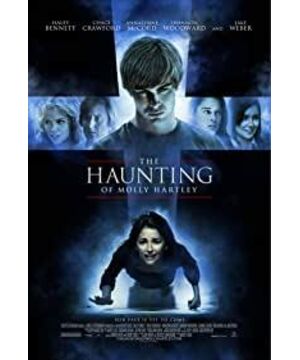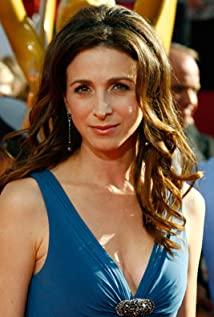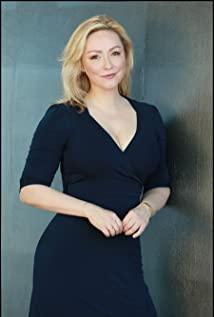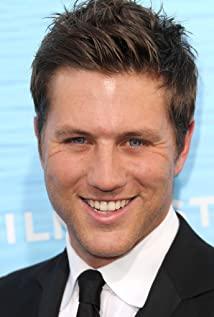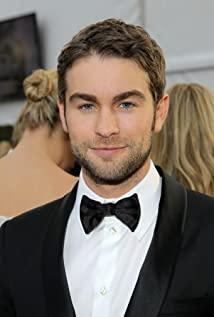The film revolves around a girl who is approaching her 18th birthday, Molly, and tells the story of Molly's life-threatening crisis around her 18th adult birthday. In the story, before Molly's birthday, the mother's dagger, the psychological counseling of Dr. Emerson, the conflict between classmates, the missionary of believers' friends, the drowning of holy water, and the revealing of the mystery of life experience; then, as the climax of the film, Molly18 The birthday ceremony changed Molly's whole life, and the film finally left the father who was abandoned in the monitoring ward and Molly's splendid beginning of adult life.
In the face of such a movie that is easily defined as a "suspense film", it really "lives up to expectations" - at least for me - brings enough questions, but the answers are far less exciting than the questions themselves; perhaps To be more precise, Molly shows us a different way of thinking, but it's not interesting enough?
Just talking about the fragment elements I listed above, I am afraid that some people have already invested in the director's logic game with their vague understanding of the usual game rules of "suspense films" like me. We'll trigger more stereotypes in our minds to try to explain this bewildering movie because of any small plot; only, I'm afraid I've failed, and I'm feeling a little guilty for my own brain cells.
Question 1. Science and religion?
The 17-year-old Molly was once stabbed in the chest with a dagger by her mother in the bathroom, and it was difficult to get out of the shadow of psychological fear, and she needed a doctor for a long time. Therefore, the director gave Molly a physiologist and a necessary psychiatrist at the same time. Foreshadowing the appearance of psychiatrist Emerson.
The "murderer"'s mother, identified by the film as a "religious delusional", was imprisoned in a strictly controlled hospital in another city. But she is like a ghost, and she appears repeatedly in the film. Her image is always fixed, that is, murmuring prayers about Molly's redemption, holding a deadly dagger, stabbing Molly again and again to free Molly's soul. The mother, who eventually died unexpectedly, was the one who first solved the mystery of Molly's life.
The relationship between the two men is the source of Molly's nightmare that is most portrayed in the film. Molly's feelings for her mother aren't as close as the mother-daughter bond in other films, instead, she has a demonized resistance to her own mother. That's why Molly, in fear, tried to seek help from psychiatrist Emerson.
The director seems to have set a scale here, with Molly and her mother at each end of the scale, and psychiatrist Emerson at the middle of the scale. I say this because our mother is not as gentle and approachable as other mothers, here she is a "religious delusional" with a murder weapon; our Molly is a saver child. The judgment of all this comes from Emerson, because she is the legitimate arbiter in this society who is empowered to define the normal and the sick.
So the question quickly arises, does the setting of psychiatrist Emerson have more significance?
The problem is that the Emerson balance is the most asymmetrical balance in the world. The moment Molly turns 18, Emerson's dark face welcomes Molly to another world. I can understand why Molly's parents are imprisoned in the surveillance ward, but I can't understand Emerson's choice to pass on God's behalf the God-given abolition of the Devil's Covenant after facing the question of "God" speech - giving Molly the only time it can be realized A chance for redemption—that is, killing his own father. Could it be that Emerson is acting as the "legal arbiter" here again, but this arbiter is always backed by darkness and facing life and death choices? Here, Emerson does what an almighty "God" should do, but with a different face. So how does the role of this role project the views of the creators? Is it just as the lines directly express, full of doubts about religious redemption itself? Or is it a deep understanding of Christian teachings, projecting the hopelessness of self-salvation? Or is it a pessimistic assumption about the evil in the adult world today? Or is it to subvert the concept of scales in our eyes, to subvert all superstitions based on stereotypes about scales? As the symbol of absolute authority in the modern scientific society, Emerson meets Christian authority because of some factors. What does this game mean?
Question 2. God's redemption or self-redemption?
Continuing to sort out the characters in the film, we will find three other important characters, Molly's father, Molly's new boyfriend and Molly's new best friend.
Molly's father initially didn't believe Molly's mother's "religious babble" (no offense) about saving Molly's soul, but when the bell rang for Molly's 18th birthday, he did. In the film, his destination is undoubtedly the monitored ward again, for the same reason that Molly's mother started.
At the same time, the role of father is also the turning point of Molly's final choice. Based on the text interpretation of the film, killing her father means the realization of Molly's redemption; while Molly's choice based on self-sacrifice is completely impossible to achieve true self-redemption. So why is this? Is the "sin" that the parents continued to Molly's life body a concrete interpretation of Molly's original sin? So, how can original sin be resolved? Isn't killing her father the only way to free Molly, the slave of sin? (And does this also mean the demise of Molly's sin itself, because Molly, the bearer of this sin, no longer exists?)
The next question is, how exactly can Molly be redeemed?
The next character, Molly's new best friend, is the only one of the believer characters to appear as a positive character, and of course we'd fully appreciate her help to Molly had she not tried to drown Molly in God's holy water. But how can a believer get Molly's redemption in the form of "murder"? Where does God's will come from?
Molly's new boyfriend is ignorant and tolerant, always caring for Molly in every possible way, but never involving substantive issues; except for the cold eyes that flashed by at Molly's 18th birthday party, we can hardly see it his point of view. But the setting of this character is not too unexpected, because the game rule of "suspense film" is to make an unexpected turn in the role of a wise man or a fool; we who are familiar with the rules, if the time If you are all waiting for that surprise to appear, how much pleasure can the unexpected surprise trigger? Well, in fact, he is the messenger standing behind Emerson, the point is clear.
In this second round of character sorting, we can find more religious elements, believers, bible, baptism, prayer, church, "religious paranoia"... So, is this enough to show that this film can be opened from the perspective of religion What about new frontiers of understanding? With God's balance being played by Emerson, Molly celebrated her 18th birthday, completely leaving her parents and moving into a powerful adult world. Even though the beginning of this world is implied by a black background, its progress is a continuation of all the "brightness" such as sunny graduations, luxury cars, close mentors, perfect love... Molly's parents And does the failure of the believer's friend declare that God's redemption is invalid?
Question 3.
The core of Molly's confusion about redemption itself. She is full of incomprehension about herself: why did her mother kill herself? Why would my mother say that she killed herself because she wanted to save herself? Why would a friend kill him when he was baptized? Why do classmates say "I know who you are" to Molly? Why is the 18th birthday such a turning point for me? They're going to take Molly, so who are they? ...
the essence of these questions can be roughly understood as follows: Who is Molly and who will she become?
Molly's sin comes from the choice of her parents, that is to say, this sin is outside Molly's consciousness, but Molly needs to face redemption because of this. Like any believer, the director affirmed the existence of original sin. At the beginning of the film, Molly encounters her mother's act of redemption, that is, her mother tries to kill Molly. After that, Molly's incomprehension about her own life made her get lost in a completely unruly choice and being chosen. After hearing a "devil contract" about herself from her mother for the first time - we can regard it as the embodiment of original sin - Molly believed in original sin and hoped to get God's redemption through God, because in Christian teaching, man Because of their own sins, they cannot redeem themselves, they can only be redeemed through God. However, when God's holy water pressed down her throat, the hope of God's redemption immediately extinguished her heart.
After God’s redemption fails, is the best solution to self-redemption, or is it not to face redemption itself at all?
Molly chose Emerson in order to achieve self-redemption, believing that her psychiatrist was the only person who could help her achieve redemption. But Emerson's role is clearly not that of a scientific authority. This puts Molly in great trouble at a time of crisis of self-redemption: there is no way. The possibility of self-redemption has only just shed a little of its light, when it is once again smothered for no reason.
Next, a series of coincidences, because there were not too many logical presuppositions, she finally made a choice in favor of Emerson - she escaped the original sin - Molly did not kill her father, but try to kill yourself. Suicide didn't make original sin go away, so Molly just killed herself who was trying to get redemption. In this way, we can see clearly that although the director does not believe in God's redemption, he believes in the existence of original sin like any believer; although he did not give Molly a proper way to end original sin, he believes in himself like any believer. The impossibility of redemption.
The climax of the 18-year-old party was supposed to contain more precise answers about who Molly is and will be, but it seems the director has run out of patience to explain it all. Is this a movie that questions Christianity? Has God's redemption been overly demonized? Is the understanding of self-salvation too limited to Christian teachings?
Question 4. Attempts to stray from a religious perspective
While we can't ignore the giant cross on the movie poster, we can still make interesting alternative interpretations based on our non-believer status. For example, why is the 18th birthday such an important plot message?
The first girl who is about to turn 18 at the beginning of the film is stopped by her father. Molly's whole story is actually an annotation of this little quote, although the annotation is not very clear. The meaning of this ritual that symbolizes adulthood is no longer just an increase in age, but a transformation. This metamorphosis affects our entire real world. Countless transformations have finally completed this powerful real world.
So how to understand the adult world at this level? Is it just rationalizing the evil in this world? If so, how are we to explain the adult Molly's father in captivity? Will all "adults" who deviate from the powerful real world be identified as "sick people" or "sinners" by this huge power and imprisoned in that hopeless monitoring ward in this life? Try to compare the free Emerson and the incapacitated Molly's father.
View more about The Haunting of Molly Hartley reviews


